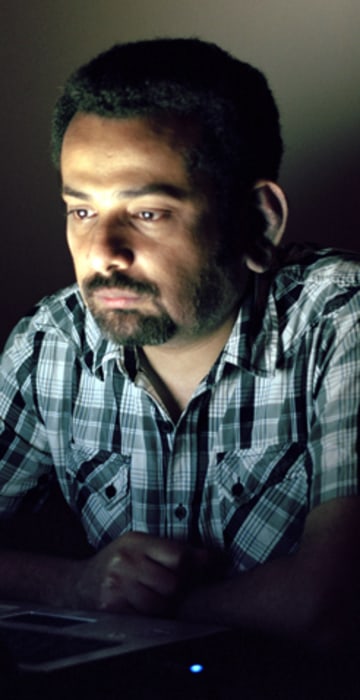
Science News
Egypt bloggers persistent in protests
Despite government efforts to silence protest, especially online, bloggers in Egypt have a long track record of knowing how to get the word out.
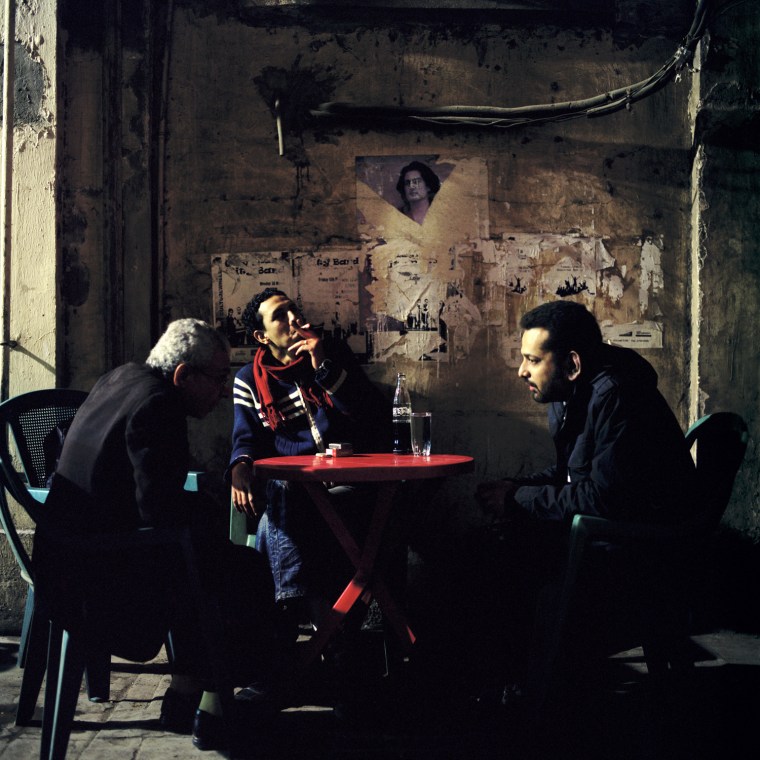
Meeting where they can
Egypt has the largest and most active blogosphere in the Arab world, and their work is done at great personal risk, facing arrest, prison, torture -- and even death, in some cases, says British photojournalist Anastasia Taylor-Lind, who is based in the Middle East. In this photo, the 'godfather' of Egyptian bloggers Wael Abbas, right, with fellow activists Kareem El Behiry, center, and Ahmed El Sayad, left, at Al Borsah Cafe in downtown Cairo, Egypt in 2010. Many bloggers are the children of Cairo’s intellectuals, radicals and activists and they gather late into the night in the shabby downtown street cafes their parents inhabited in the 1960s and 70s.
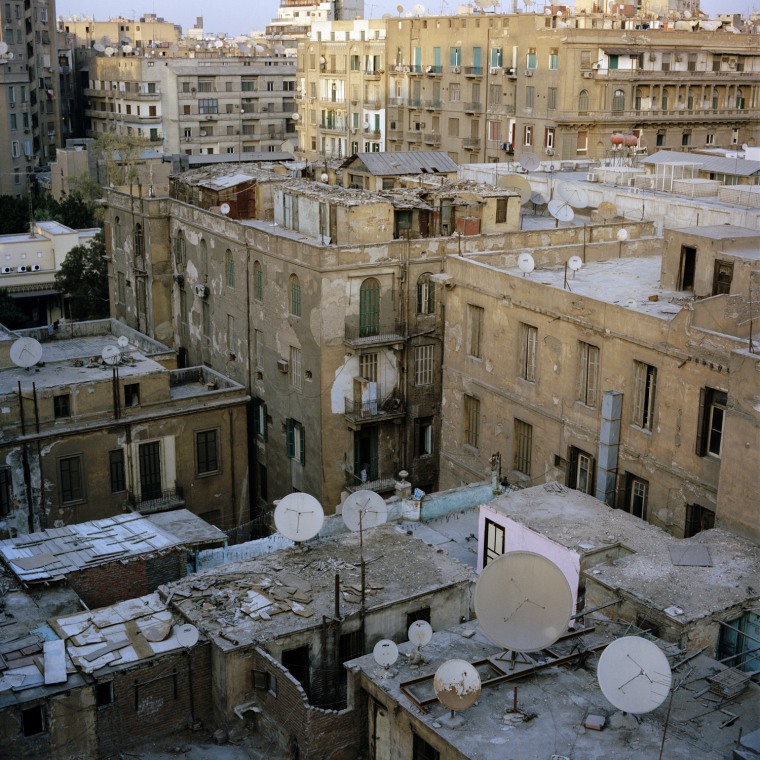
Satellites offer access
A view over the satellite-topped rooftops of downtown Cairo, Egypt. Egypt, the Middle East’s business leader, is unique among its Arab neighbors in that it does not restrict the flow of information online. This is due to the “Ministry of Communications and Information Technology “ which has a policy of keeping the Internet open to encourage commerce and investment. In addition, the government also promotes a one laptop per child policy and offers payment plans for as little as 45 Egyptian pounds ($8) a month to students who wish to purchase computers.
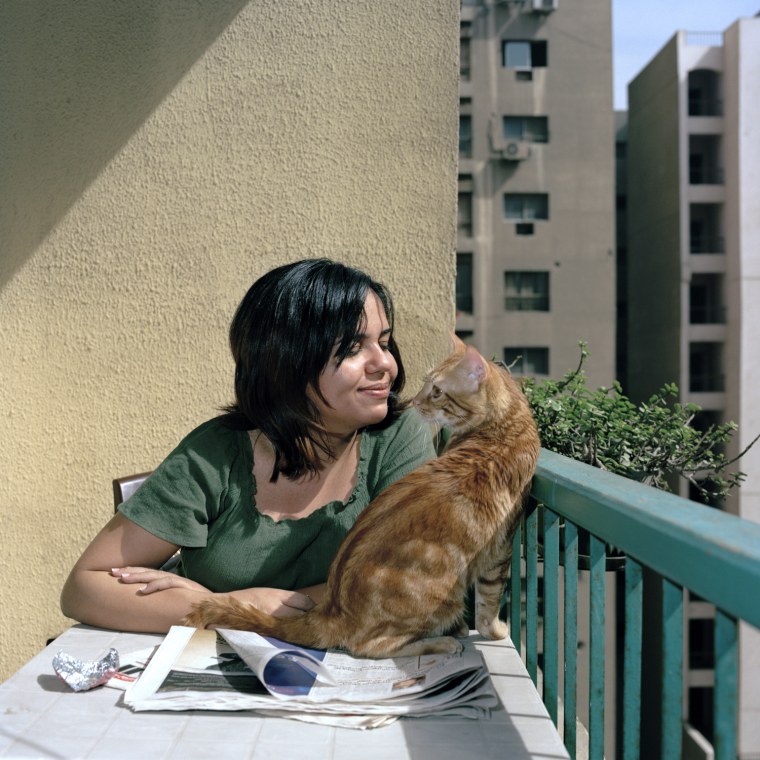
Long, familiar effort
Blogger Nora Younis reads the morning paper on her balcony at home in Maadi, Cairo, Egypt. She is also a journalist and editor for Al-Masry Al-Youm newspaper, and writes about human rights abuses, something she has spent years documenting. In 2008, she and an activist from another country shared the annual Human Rights award from the Human Rights First Organization.

Bringing bloggers to the fore
Ehab El Zelaky, Web editor for the independent newspaper Al-Masry Al-Youm, pictured in the newsroom in Cairo, Egypt. El Zelaky is considered one of the first Egyptian print editors to engage bloggers in the print media. The bloggers are supported by IT specialists, human rights lawyers, and independent newspaper editors.
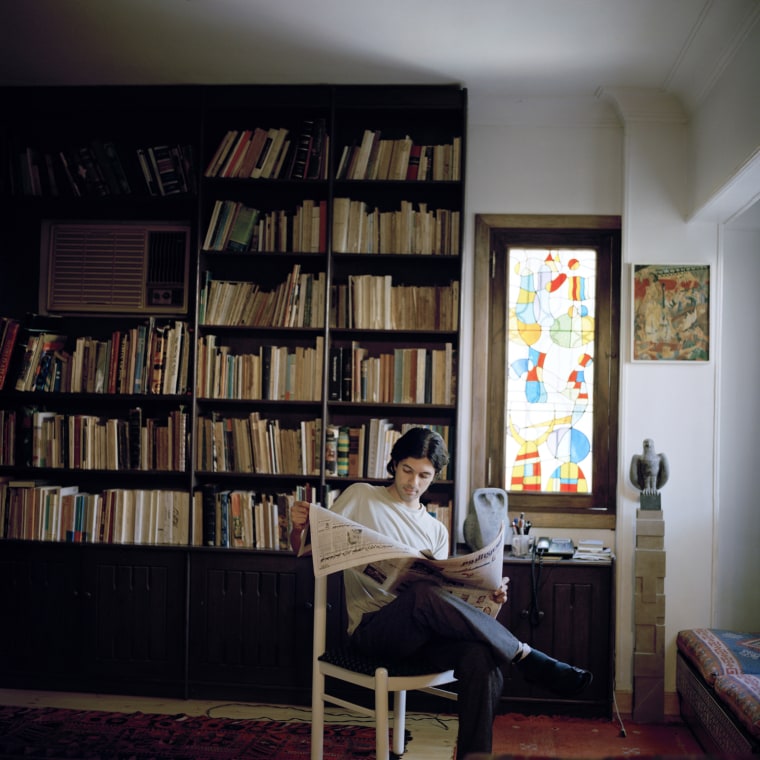
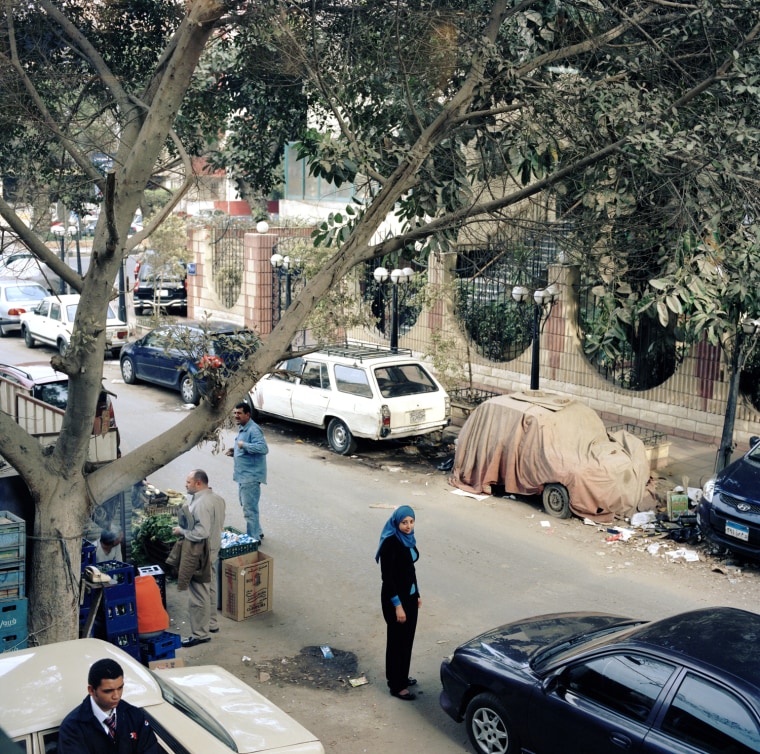
Initially, driven by reports of women's torture
Human rights blogger Noha Atef poses for a portrait on the street outside Al Shorouk newspaper offices, where she also works as a journalist, in Mohandessin, Cairo, Egypt. Her interest in her country's human-rights abuses was sparked by reading a report about how women were tortured in police stations. Online young Egyptian activists speak freely and can escape political repression by challenging the regime openly on their blogs. They write about the country’s record of human rights abuses, police torture and social injustices, often distributing information about events and incidents that would otherwise be unreported.
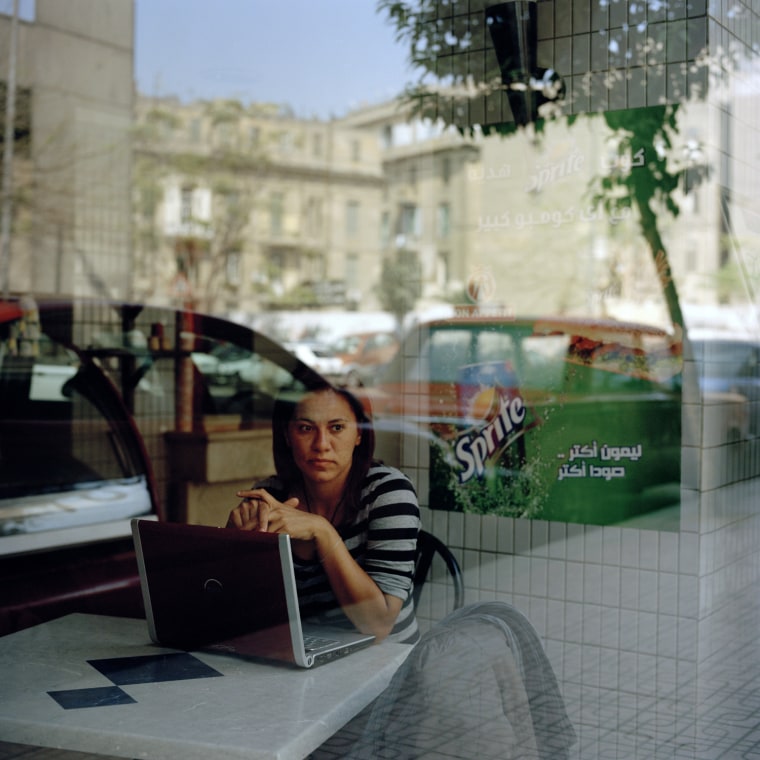
A break from the pressure
Blogger and political activist Shahinez Abdelsalam pictured in a cafe in downtown Cairo, Egypt. The following day Abdelsalam emigrated to France because she was 'too tired' of living and working in Egypt. Bloggers,, says photojournalist Anastasia Taylor-Lind, "are routinely harassed, imprisoned, sometimes tortured and occasionally murdered."
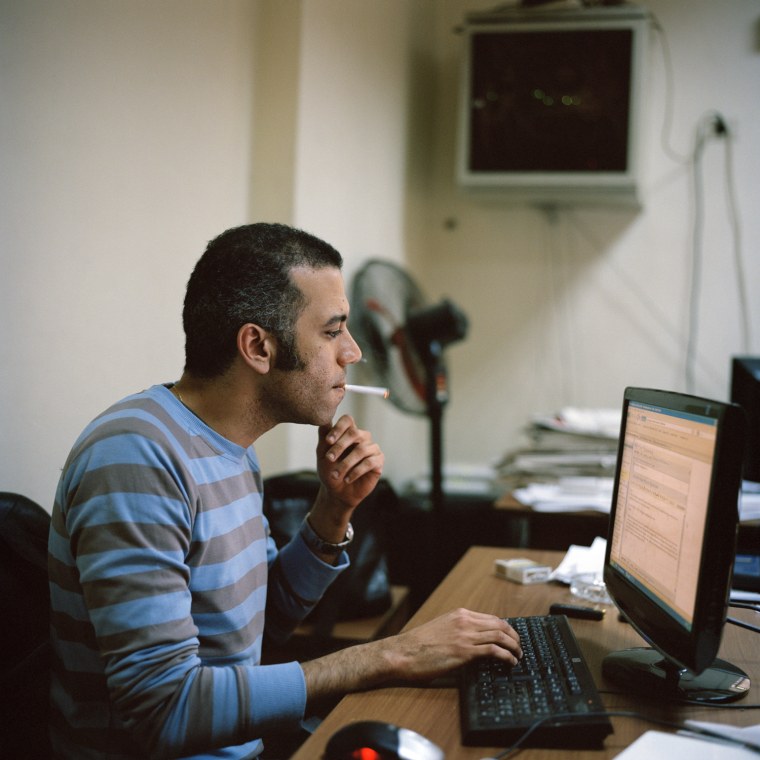
Wide-ranging views
Socialist blogger Hossam El Hamalawy in his office at Al-Masry Al-Youm newspaper, where he also works as a journalist, in Garden City, Cairo, Egypt. The Southern California-based Levantine Cultural Center has described him as an "an outspoken proponent of human rights, labor movements, and free speech."
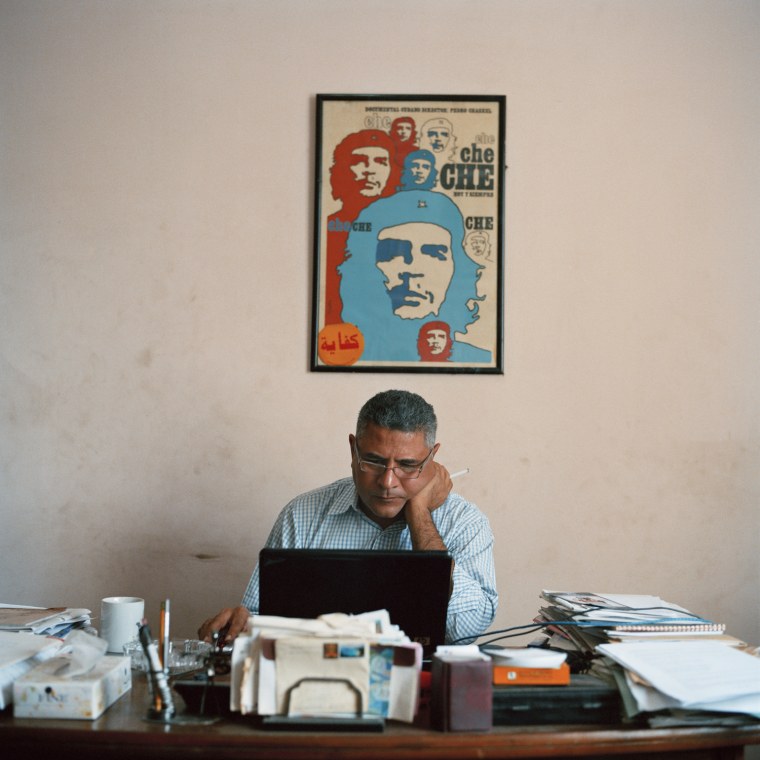
Defense help
Lawyer Gamel Eid, founder of The Arab Network for Human Rights Information, is pictured at work in his office in downtown Cairo, Egypt. Cyber activism, however, comes at a price in Egypt and bloggers are routinely arrested and imprisoned for speaking out. During these detainments, police torture is not uncommon and there are currently more than 20 people serving prison sentences for “crimes” connected to cyber activism in the country. Eid's group helps defend many bloggers when they are arrested and tried by the government.
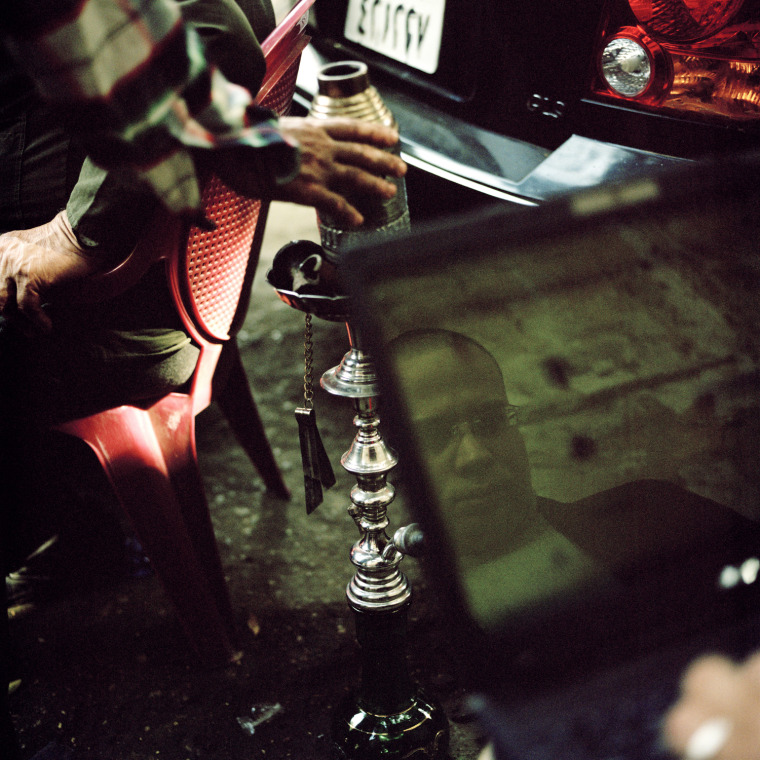
Activist on Facebook
Ahmed Maher, blogger and founder of the Facebook activists' group 6th of April Youth Movement, smokes a shisha pipe while checking e-mails at Takeiba cafe in downtown Cairo. Egypt. Egyptian bloggers use social networking sites such as Facebook and Twitter to get people onto the street by rallying anti-government protesters, organizing workers’ strikes and mobilizing demonstrators in cities across the country.